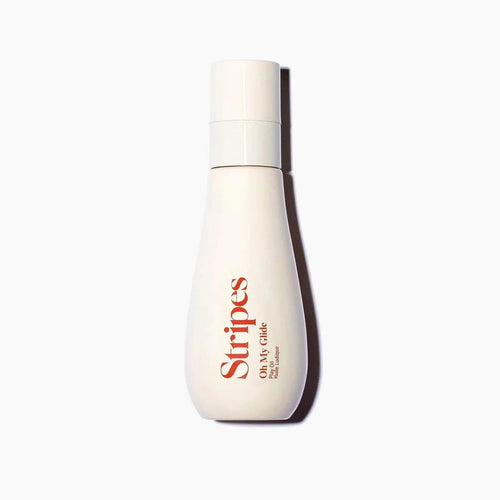Whether you’re getting close to menopause age or you’ve already been dealing with symptoms for a few years, it’s totally normal for your libido to experience a nosedive. Don’t feel guilty about “not being in the mood.” Beyond having a lack of desire, sex during menopause can straight-up hurt due to vaginal atrophy and dryness.
Instead of mourning your lost libido, it’s helpful to understand what’s going on beneath the surface. There are reasons why you feel this way (and why it may not last forever).
5 Causes of Low Libido in Women During Menopause
When you enter menopause, your sex hormones start to deplete, which can also put your sex drive on snooze. Other physical changes that happen around the time of menopause:
- Hot flashes: Nothing makes you want to get freaky like sweating profusely day and night.
- Insomnia: You can’t sleep. You’re exhausted during the day. Rise and repeat. Not a recipe for romance.
- Vaginal atrophy and dryness: Sex during your menopausal years can go from pleasurable to freakin’ painful. Blame it on the decrease in estrogen, which can lessen blood flow to the vagina and make it more difficult to self-lubricate. Vaginal atrophy is happens when your vaginal canal becomes dry, thin, and inflamed. This condition can make sex and urination painful.
- Genitourinary syndrome of menopause (GSM): GSM is a relatively new term that describes a variety of sexual and urinary health problems during perimenopause and menopause. Symptoms may include dryness, burning, itching, sexual discomfort, pain during urination, urinary tract infections, and urinary urgency.
GSM can be debilitating, so definitely check in with your gynecologist or PCP about your symptoms (especially if you think you may have an infection). Topical treatments, pelvic floor physical therapy, laser treatments can reverse these bothersome symptoms and help and, hormone therapy can all help alleviate discomfort down there.
How can I get my libido back?
There are things you can do to improve the way your vagina feels during menopause and to make the idea of sex more appealing again.
-
Lube, lube, lube. Does the idea of tossing in a big ol’ tube of lube into your drugstore cart along with your deodorant and shampoo make you want to never have sex again? The online marketplace is bursting with options with sexy packaging, different textures, and options to make lube seem a lot less clinical.
- Topical creams. They can increase blood flow to the vagina, helping you to get wet again.
- Masturbate (with or without a partner). Update your sex toy drawer! Sexual activity of any kind can help keep your vaginal tissues more elastic and improve function.
There are also treatments that you can discuss with your doctor.
- Hormone replacement therapy (HRT). HRT can help bring your sex drive back into gear and help with atrophy and dryness.
- Lasers. Energy with a laser forces the skin to heal itself. This can provide benefits to the vagina, improving the skin, lubrication, and bladder functions.
If you’ve got a partner that’s feeling lousy or longing for sex, be open about your hormonal situation. Communication is the most important part of any relationship. You may not want to have sex now (with good reason). But don’t keep it to yourself. Tell your partner what’s going on, and find ways to achieve intimacy in ways that make you both feel loved and appreciated.





